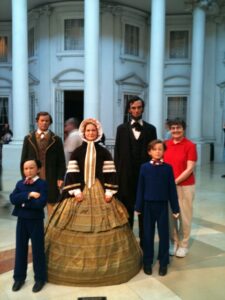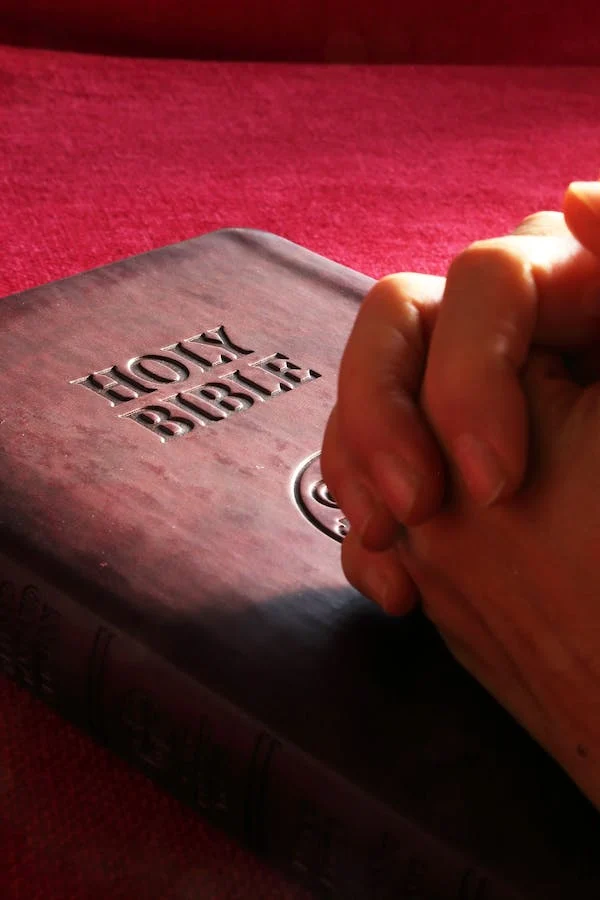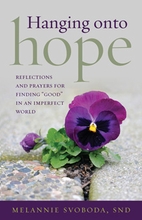Steven Spielberg’s recent movie, Lincoln, starring Daniel Day-Lewis, has rekindled my love and esteem for Abraham Lincoln. Over the years I have read many books on Lincoln, viewed documentaries, and even spent a day at the Lincoln Presidential Library and Museum (www.alplm.org) in Springfield, IL. What a sterling human being he was!

One thing that touches me deeply about Lincoln is how much he suffered throughout his life. At age 9 he lost his mother. His father eventually married a widow, Sarah Bush, with three children. Lincoln developed a close bond with his stepmother. It was she—not his father—who encouraged his education. Although Lincoln had only about a year’s worth of formal education, he was an avid reader and became a self-taught, highly educated person. As a young man Lincoln endured another loss when his only sibling, Sarah, died giving birth to a stillborn child.
Lincoln suffered from what the nineteenth century called “melancholy.” Today we would call it “clinical depression.” When his sweetheart, Anne Rutledge died of typhoid, Lincoln became so depressed that his friends, fearing he would take his own life, took away his razors. Lincoln eventually “pulled through” that dark time. A few years later, he met Mary Todd, a genial and educated young woman. The two were engaged, but shortly before the wedding, Lincoln backed out. Mary, though distraught, refused to marry any of her other suitors. Instead, she held out for Abe. A year later Lincoln reappeared on the scene and the two were married.
The couple had four sons, but only the oldest, Robert, lived to adulthood. The cold facts don’t do justice to the Lincolns’ pain: Edward, 7, died of tuberculosis, Willy, 12, probably of typhoid, and Thomas, 18, of heart failure. After Willie’s death, Mary, who was now First Lady, was overwhelmed by despair. One way she coped with her loss was compulsive shopping, supposedly buying 300 pairs of gloves in a few months. Her behavior was scandalous to a nation at war—and very trying for her husband.
Added to all these personal sufferings were the sufferings Lincoln bore as president of the United States during what historians call “the country’s greatest moral, military, and constitutional crisis.” As the Civil War raged on, Lincoln was reminded every day of its tragic toll. From his summer “cottage,” three miles north of the White House, he could actually hear the cannon fire from nearby military skirmishes. Across the street was the National Cemetery where the dead of the Union army were buried daily. As he rode on his horse to and from the White House, Lincoln sometimes stopped into the make shift hospitals to talk to the wounded. And from his saddle he also saw firsthand the many squalid camps of runaway slaves.
But Lincoln was great not simply because he suffered as an individual and as president. He was great because of what he allowed suffering to do to him: turn him into a man of profound compassion, integrity, wisdom, humility, and strength. Though Lincoln himself never joined a church, he often went to church with Mary. He also found tremendous consolation in the Bible, frequently pouring over its pages. His famous Gettysburg Address celebrates human dignity and equality in decidedly Biblical tones and rhythms. His second inaugural address, echoing both the phraseology and teachings of the Bible, was a call to national forgiveness and reconciliation, with “malice toward none…and charity for all.”
As we celebrate president’s day, we thank God for this great man. We might also ask ourselves: what sufferings have I borne in the past or am I bearing right now? What kind of a person am I allowing these sufferings to turn me into?







8 Responses
I have just developed an interest in the life of Abraham Lincoln and other historic figures after reading “Love is Eternal” by Irving Stone, about Mary Todd Lincoln, and “Killing Lincoln” by Bill O’Reilly. What a wonderful man he was in the face of adversity, yet he never really lost his “ground”. It is a shame that such goodness to all people can bring about such hate in others to lead to assinations. It seems that’s a common thread in many of our assinations of the centuries, Lincoln, Kennedy, Martin Luther King, all were trying to maintain human dignity and equality, while none of these men were perfect, they were “grounded” in what they knew to be right. I often think that must be how it was with Jesus on this earth. Truly he would have been the “first assination” because of his teachings on human dignity and equality.
Dear Chris, Yes, goodness (unfortunately) sometimes has a way of attracting hatred…Through the ages many good people have been assassinated who stood up for what was right. Thank you for reminding us of a few of them–especially Jesus himself. Melannie
Who is the person standing next to Lincoln (in the red shirt)? She certainly looks like a good friend!
Thanks for making Lincoln so real! You are so right about the role of suffering in a person’s life.
Dear Sally, The woman in the red shirt is thought to be a friend of the family…Lincoln supposedly helped her with her writing! Melannie
This photo makes me smile! Fond memories of a wonderful day in Abe’s home town, following a beautiful week of retreat! Thanks again for both, Melannie, and for your ongoing writings, so beautifully and meaningfully crafted. They feed my spirit.
Dear Kathleen, How nice to hear from the photographer herself! I’ll always treasure our time together at the Lincoln Museum! Gratefully, Melannie
Hi Melanie
I like the part where you mentioned Lincoln stopped by to visit the injured…
This reminded me of a 27 year old young man I know of who had his leg amputated because of cancer and now he is charging on to fight tumors in his lungs…it also reminded me of another elderly woman who was recently moved into a nursing home…she had no children of her own…and another 80+ year old couple who dealt with financial difficulties and an amputation due to diabetes…I see the face of Christ in them…I think about Christ asking for his disciples to be with Him…but they all fell asleep! …please God, help me to stay awake!
“Open my eyes Lord, help me to see your face
Open my ears Lord, help me to hear your voice
Open my heart Lord, help me to love like You…”
Jesse Manubusan
Thank you, Marian, for your inspiring examples of individuals who bear the cross of Christ in dramatic ways. And I love the refrain from the song that you concluded with. Bishop Robert Morneau of Green Bay always says that the essence of spiritality is to “stay awake.” Thanks again! Melannie